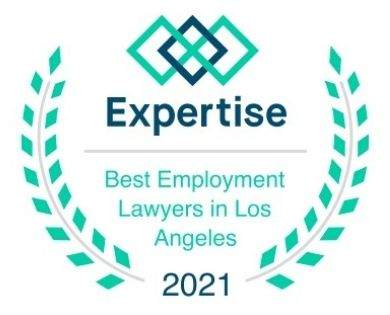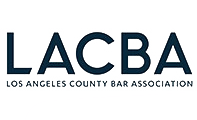Lots of things change when you lose your job. In addition to the obvious financial consequences, you can experience significant stress, your days may lack purpose, and you will need to find a way to explain to potential employers why there is a gap in your employment. Losing your job can be difficult under the best of circumstances. Losing your job is more difficult and frustrating when your termination is wrongful.
When is a termination of employment wrongful? As it turns out, more often than most people think. Both at-will and contract-based employees can experience wrongful terminations, and this is true even when an employer reserves the right to terminate “for any reason or no reason at all.” Under California and federal law, there are clear and well-established limitations on when and why employers can fire employees. In short, a wrongful termination occurs when the termination violates statutes, public policies and/or breaches an employment agreement.
If you believe that you were wrongfully terminated, or if you are concerned that you may be wrongfully fired, we encourage you to contact us right away. If you have been wrongfully fired, you could be entitled to compensatory and punitive damages, and it is important that you speak with a wrongful termination attorney as soon as possible.
We handle wrongful termination cases on a contingency basis. You pay us nothing unless we obtain money for you. Contact us online or at (213) 863-4276 to schedule a free consultation.
If you are in need of a Wrongful Termination Lawyer, contact Custis Law, P.C. today for a free consultation.
Or Online
Send Keith a MessageGrounds for Wrongful Termination Lawsuits in California
In California, both at-will and contract-based employees can sue for wrongful termination under appropriate circumstances. The grounds for seeking damages for wrongful termination in California generally include the following:
1. Discriminatory Unlawful Termination
State and federal laws prohibit California employers from terminating employees based on their membership in a “protected class.” California’s Fair Employment and Housing Act recognizes more protected classes than most other states in the country. If your employer terminated you because of any of the following protected personal characteristics, you may be able to pursue a case for wrongful termination:
- Your age if you are 40 year old or older.
- Your race, color, national origin or ancestry.
- Certain medical conditions including cancer.
- Certain physical and mental disabilities.
- Your sex or gender.
- Your pregnancy or status as a new parent.
- Your sexual orientation, gender identity or gender expression.
- Your religious beliefs and practices.
Other potential grounds for pursuing a discrimination-based wrongful termination claim include termination based on genetic information, marital status, military or veteran status, and political affiliation or activities.
2. Retaliatory Termination
As an employee, you have the right to do certain things without fearing that you could lose your job. This includes
- reporting or opposing discrimination or harassment in the workplace,
- requesting a protected leave of absence,
- refusing to engage in illegal conduct, and
- reporting illegal conduct (or apparently illegal conduct) to a supervisor or other employee who can investigate and stop the unlawful practice, or to state or federal authorities (commonly referred to as “whistleblowing”).
Terminating an employee for engaging in these types of conduct is referred to as “retaliation,” and it is illegal under Title VII of the Civil Rights Act of 1964, California’s Fair Employment and Housing Act, California Labor Code Section 1102.5, and various other state and federal laws.
3. Termination in Violation of Public Policy
Termination in violation of public policy is another exception to California’s at-will employment doctrine. It can provide grounds for a wrongful termination action by contractual employees as well. In California, a firing is considered in violation of public policy if it is based upon:
- The employee’s performance of a legal duty;
- The employee’s exercise of a legal right;
- The employee’s refusal to violate the law; or
- The employee’s reporting of a statutory violation affecting the public.
As you can see, the grounds for pursuing a retaliatory termination claim and a claim for termination in violation of public policy will, in some cases, overlap. It is not important that you know specifically what type of wrongful termination case you have. What is important is that you take action promptly, and this starts with scheduling a free consultation to discuss your legal rights.
4. Constructive Termination or Discharge
What if you have not been formally terminated, but your employer has made it so unbearable to do your job that you want to quit? In legal terms, this is referred to as constructive termination or discharge, and it can give rise to the same rights and remedies as a formal termination of employment. Examples of employment-related actions that may support a claim for constructive termination or discharge include (but are not limited to):
- Assigning an employee to work in dangerous working conditions
- Creating a hostile work environment
- Consistently assigning an employee to undesirable tasks or shifts
- Demoting an employee or writing unjustified negative performance reviews that prevent career advancement
- Sabotaging an employee’s work
5. Breach of an Employment Contract
If you have an employment contract, your employer may also unlawfully terminate you by breaching the terms of your employment contract. This could include terminating your employment without cause before the end of the stated term of the agreement, or terminating your employment for a reason other than those identified as grounds for termination. While the language of some employment contracts is clear, contractual provisions often leave room for interpretation. It will be important to review carefully the terms of your agreement in light of the applicable provisions of California law to determine whether you have a claim for damages.
Understanding At-Will Employment in California
In California, most people are employed as “at-will” employees. In fact, under Section 2922 of California’s Labor Code, a person is presumed to be employed at-will unless (i) he or she has an enforceable employment contract, or (ii) a statutory or public policy exception applies. Under the at-will employment doctrine, both the employer and the employee have the right to terminate their relationship at any time and for any reason.
Well, for almost any reason. Despite the sweeping language typically used to describe the at-will employment relationship, there are actually significant limitations on employers’ rights to terminate their employees. In California, an at-will employee’s termination is considered wrongful if it involves or is the product of:
- Discrimination
- Retaliation
- Violation of Public Policy
- Constructive Termination or Discharge
- Breach of an employment agreement
What Our Clients are Saying
"I really needed a sounding board and some help navigating these waters, and you treated me right. You did not fail to deliver!"
Custis Law, P.C. Client
More TestimonialsOver 20 Years’ Experience
Los Angeles employment lawyer Keith Custis brings over 20 years of legal experience to his representation of employees in wrongful termination matters. With experience on both sides of employment-related legal disputes, he offers unique insights and a unique breadth of knowledge about the issues involved in these often-challenging cases. If you have been terminated or are concerned about losing your job, he can help make sure your employer is held accountable.
Let a Los Angeles Wrongful Termination Attorney Fight for You
If you have been terminated and suspect that your termination violates California law, please schedule a free and confidential consultation with the wrongful termination attorneys at Custis Law, P.C. by calling (213) 863-4276 or by contacting us online today.
Our Los Angeles employment lawyer will handle all wrongful termination cases on a contingency basis. If we take your case, we will advance charge you nothing unless and until we obtain a settlement or verdict for you.
Contact Custis Law, P.C.
If you would like to schedule a free, no-risk consultation with Custis Law, P.C., call (213) 863-4276 or submit a request through our online form. If we cannot answer you inquiry immediately, we will be in touch within 24 hours.









